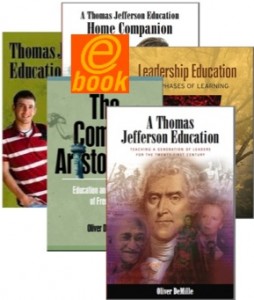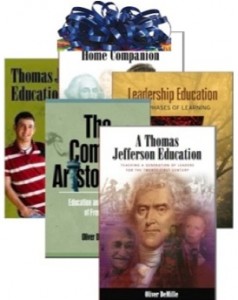Please click on a title to skip to the article you want; or, simply scroll down the page to view them all in order.
Featured Article:
Other Features:
Featured Article
Make a List; Check it Twice
by Oliver DeMIlle
The Parable of the Fisherman
The story is told of a small boat owner whose business consists of taking wealthy tourists out on day-long fishing expeditions in his boat. He loves the ocean, the sky, the relaxed activity of fishing, and meeting new and interesting people each day. Near the end of one such happy day his happy client, an accomplished businessman, tells him that he should get another boat, double his income, and eventually grow his business into several boats.
“Why would I want to do that?” he asks. The businessman replies: “So you can make a lot more money!” “Why would I want to make a lot more money—especially since with all those boats I’d have to hire and train and supervise other tour guides, run a payroll and manage a thousand other details?” the boat owner inquires. “Well, that’s how you grow your business,” the executive says.

“Why would I want to grow my business?” the man persists. A little exasperated, the business leader explains: “Then you can invest, earn a lot of money, and have the freedom to do what you want!” The client’s words hang in the air as he finally absorbs the obvious truth. The small entrepreneur smiles and says, “That is what I already do every day.”
Find the Diamonds Hidden Throughout Your Home
I don’t remember where I read this great story, but it teaches one of the key elements of getting a truly quality education. (By the way: If anyone knows the original source of this story, please send it to me so I can give credit where it is due.) Indeed, there are a number of great classics that teach variations on the same principle.
- The Acres of Diamonds story, for example, illustrates how many of us spend our whole life searching for something just to discover that it was right there all along in our own back yard.
- C.S. expanded on this theme in his classic essay, “The Inner Ring” (found in The Weight of Glory), where he teaches that too many people waste their lives and energies trying to impress others instead of just truly becoming their best selves and serving the world.
- Alexander Solzhenitsyn rejects the modern United States as the model for downtrodden Russia’s future because he says we’ve chosen legalism over morality (“is it legal?” substitutes in our corporate and public life for “is it right?” or “is it good?”) and also adopted the false belief that material things are the source of happiness (rather than spirituality or relationships).
- Gandhi championed this same ideal, as he reportedly said, “we must be the change we wish to see in the world.”
- Buddha summed it up with: “Our mission in life is to find our mission in life, and then to give our whole heart and soul to it.”
- Shakespeare, Austen, Tolstoy and many others wrote about overextending our lives in search of things that don’t matter while neglecting the core things close to home that matter greatly.
- Socrates had already addressed such folly, and how prevalent it is among humans.
- John Adams suggested that people are so worried about what others think of them that they’re almost constantly distracted from what really matters in their lives.
- It was Jesus who suggested to Martha that she was “troubled about many things” and recommended that instead she choose “the better part”.
But back to the small fishing-boat entrepreneur: How many of us have all the elements of a truly ideal life available to us right in our homes—but fail to notice because we are consistently in search of … something … else?
What if you couldn’t have anything more/different than you do right now? Would you be happy? Could you be? Or more to the point, how would you alter your approach so that what you have right now would make you the happiest person alive? Is there any chance that everything you need to live your dream life is right there in your home and family right now?
Is “More” the Opposite of “Better”?
TJEd is all about classics, but I think too often we moderns (and maybe humans have always been this way) tend to reform the classic lessons in our own image. The truth is that the classics are profound and multi-layered—which means that if we go to them seeking a certain thing, we’ll most likely find it.
If we want to justify our current choices, the classics can supply examples. If we want to make a change for the better in our lives, the classics are full of suggestions and help. If we just want some entertainment, the classics oblige our desires. Like profound poetry, the classics can teach us on many levels.
That said: There is another way to read the classics. We can search them for direction that we need right now to greatly improve our lives. And very often such guidance leads us not to do more, take on new projects, or expand our already full days with additional, albeit novel, ventures or schemes—but rather to do the little things better.
Do the little things better. That’s quite a concept. And it’s often a hard one to grasp. As if we were like the Hindu deities with four legs or six arms, we human beings tend to see ourselves as constantly needing to run faster and do more. What if we actually need to slow down and do less?
What if our four-year-old daughter really does need us to read to her more, to put our lives in a place where her daily requests to read her a story or play “Uno” with her aren’t an interruption—but a hopeful foreshadowing of budding love of learning?
We worry so much about how to get our kids a quality education; then when she comes begging to be taught we tell her, “Not now, honey; I’ve got to finish this project. Maybe later.” We read books and attend seminars, follow blogs and converse on online forums, trying to learn how to inspire our kids to learn and study; then when she asks for our time to play a game full of mathematical lessons we repeat our ready mantra: “Maybe later.”
How many “Maybe laters” are you up to now? What would it take to catch up on lost opportunities? The problem is, if we work out a plan to catch up and then tell her how it’s going to be, it turns out she really isn’t interested. She just wants one story at a time, read over three times right now; and then she wants to go do something else. When we miss out on that daily request, we missed it. Period. Done. Over.
It might come again some other day, but there are no make-ups of the day that is passed. The diamonds are in our own back yard, if we would only take notice.
The New and Exciting Can Wait
Too often we moderns are like the children in The Cat in the Hat. We are so bummed out by the rain that all we do in our search for the new and exciting is invite mischief and turmoil in our lives. We could embrace the rain and enjoy the overcast day for what it brings to us. Many tribal cultures, for example, believe that the purpose of a rainy day is different than the purpose of a sunny day. In Western society we want to flip a light switch and turn night into day at will, without ever thinking that each has a distinct purpose designed for our happiness and well-being.
Pollyanna had it right. Whatever came, she played “The Glad Game.” She chose to assume that everything we experience is here with the purpose of making us happy, and when a challenging event came she set her mind to figuring out all the happy things it signified. We could add this to our list of lessons from the parables of diamonds and fishing boats.
This is more than just making lemonade out of lemons, however. It is about discovering how much we genuinely, sincerely and deeply love lemonade. It is about embracing the best things in our life, of fully basking in what is right under our noses. It is about getting up from the computer after you read this, walking to a mirror, looking yourself squarely in the eyes and saying, “I am happy right now. I don’t need all the bells and whistles. There is so much more I can do to be great at the little things in my life. I’m starting right now.”

The little things include your four-year-old daughter and the eleven-year-old son. The little things include the sixteen-year-old daughter, the spouse who needs a little more attention in the form of a long foot rub, and that book on the shelf that you just haven’t been able to start yet. The little things include…well, all sorts of things. But each of them is close. Each is right in front of you. Right in your home, probably, and deeply in need of your attention.
Too often we don’t notice the little things because they are little, and because so often they aren’t squeaky wheels. We just let them go because we are so busy, then we feel unfulfilled and seek for something to fill the gap. We end up trying to fill that empty feeling in so many ways, while the real need is too often ignored simply because it is so close, so familiar, so contentedly and trustingly set aside for a while—again.
Making a List, Checking it Twice
What are the little things right now in your life? What are those little things that so need your interest, your awareness, your consideration? Whatever they are, they are your acres of diamonds. They are your dream life just waiting to happen. They are the real you just waiting to blossom.
A recent article I read humorously suggested that no real man should ever use the word “blossom,” but I disagree. The “little things” focus is just as important for men as it is for women. Wives and mothers, consider forwarding or printing this for the men in your life. It is not inaccurate to say that real men are the ones who master the little things. That’s what C.S. Lewis concluded in “The Inner Ring” and “Men Without Chests.”
So once again, what are those little things in your life that need you? Make a list. Check it twice. Such a list is your blueprint to success in the days and weeks ahead. I recommend a New Year’s resolution, but with a TJEd twist: List the little things that most need you right now, and resolve to accomplish them before the new year. Before January 1. At least some of them—the right ones. They’re little things, after all. You can do this.
If you’re struggling to come up with a list of little things, try reviewing the 55 ingredients in Leadership Education: The Phases of Learning. Nearly all 55 are little things that can make a huge difference.
One of my Core classics teaches that out of small things, great things come. The challenge is to recognize and do the small things before their time is past and gone. A great modern classic states: “Don’t Sweat the Small Stuff–and it’s all small stuff.” I agree; don’t sweat it. But do list the little things in your life that need you and give them the positive attention they truly deserve!

A Hole in Your Heart
In a modern holiday movie, a character tells the story of a tribal medicine man who can’t sleep because he feels he has a hole in his heart. He ponders on what is needed and what is missing, and comes to the realization that his modern tribe has lost the art of carving totem poles. This is a little thing, perhaps, but he sets out to carve a totem pole. He has never been taught how to do this, has never seen it done, so it takes him five years. But when it is done and erected, the “hole in his heart” is healed.
What are the holes in your heart? If they are big, the way to heal them is likely by dealing with the little things. Perhaps there is a lost art that wasn’t passed down to you that you must resurrect for your sake and the sake of your tribe. If you have little holes in your heart, they may be a clue on where to focus. The power is in the little things.
Find the little things in your life, the things too small to demand your urgent attention, the ones that too often go undone because they are so easy to dismiss. That’s where your power is. That’s the “tipping point” in your life. List them. Do them. Watch your life drastically change.
There is so much about your life and home that is exactly your dream life. The rest…well, the rest will be fixed by taking on the little things. Especially in relationships. We live in a world where the false mantra of “bigger is better” has become a dogma, and all too often we live our lives in search of more. More money, more recognition, more accomplishment. But what about more happiness? “More” has become the enemy of “Better,” and it is in being better in the little things that happiness is found.

Little things
Thomas Jefferson set the example by walking. This was a little thing, but he felt that a daily walk in the woods made all the difference in his ability to succeed in the various responsibilities in his life. The little things matter. TJEd, for example, is all about the little things. All Seven Keys are actually little things, nuanced approaches to education that change everything.
In a speech a few years ago I suggested that an Eighth Key of Great Teaching is “Secure, not Stressed.” Nothing makes us more secure than to do better in the little things.
Consider taking a few moments to list the “little” things in your life that you need to do, or do better. Give yourself permission to lay aside what you should so you can follow through on your new list and do it. This is a key to success and happiness—just to do the little things, a little better. A little today. A little tomorrow. Now that’s leadership. That’s TJEd.
*********************************
Leadership Education Library e-books!
Consider the possibilities!
Here are some of the titles now available in e-reader and kindle format:
- A Thomas Jefferson Education: Teaching a Generation of Leaders for the Twenty-first Century
- Leadership Education: The Phases of Learning
- Thomas Jefferson Education for Teens
- The Coming Aristocracy: Education and the Future of Freedom
- FreedomShift: 3 Choices to Reclaim America’s Destiny
*********************************
Leadership Education Gifting Guide
The Holidays are upon us! Consider the following guide to share your love for Family, Freedom and Prosperity by gifting from the Leadership Education Gift Catalog.
Below are some ideas of what might be appreciated by the wonderful people in your life….
Dad:
- A Thomas Jefferson Education: Teaching a Generation of Leaders for the Twenty-first Century
- FreedomShift: 3 Choices to Reclaim America’s Destiny
- The Coming Aristocracy: Education and the Future of Freedom
- The Freedom Crisis (mp3)
- The Four Lost American Ideals (mp3 or CD)
- Cycles from the Classics (mp3)
- Hero Education: A Scholar Phase Guidebook for Youth, Parents and Mentors
- Thomas Jefferson Education for Teens
Mom:
- Leadership Education: The Phases of Learning
- Core and Love of Learning: Seminar Highlights
- This Week in History
Youth:
- A Thomas Jefferson Education: Teaching a Generation of Leaders for the Twenty-first Century
- Thomas Jefferson Education for Teens
- Hero Education: A Scholar Phase Guidebook for Youth, Parents and Mentors
- Leadership Education: The Phases of Learning
- This Week in History
- FreedomShift: 3 Choices to Reclaim America’s Destiny
- The Four Lost American Ideals
- The Freedom Crisis (mp3)
Kids:
Coaches/Teachers:
- A Thomas Jefferson Education: Teaching a Generation of Leaders for the Twenty-first Century
- Thomas Jefferson Education for Teens
- The Freedom Crisis (mp3)
- The Four Lost American Ideals
- Leadership Education: The Phases of Learning
- Cycles from the Classics (mp3)
- The Coming Aristocracy: Education and the Future of Freedom
Grandparents and In-laws:
- A Thomas Jefferson Education: Teaching a Generation of Leaders for the Twenty-first Century
- Leadership Education: The Phases of Learning
- The Four Lost American Ideals
- Thomas Jefferson Education for Teens
- The Coming Aristocracy: Education and the Future of Freedom
- FreedomShift: 3 Choices to Reclaim America’s Destiny




